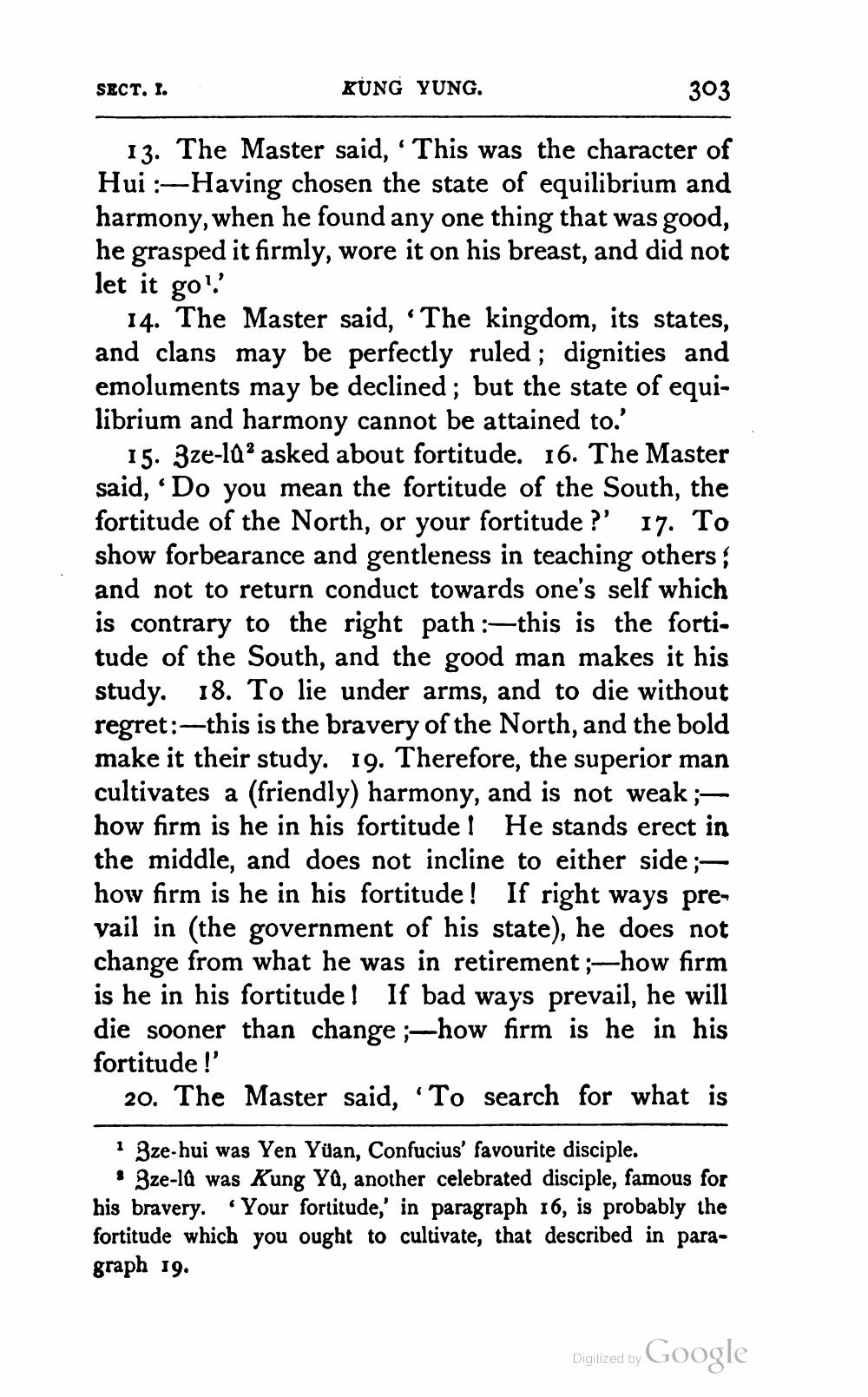________________
SECT. I.
KUNG YUNG.
303
13. The Master said, 'This was the character of Hui :-Having chosen the state of equilibrium and harmony, when he found any one thing that was good, he grasped it firmly, wore it on his breast, and did not let it go!'
14. The Master said, “The kingdom, its states, and clans may be perfectly ruled; dignities and emoluments may be declined; but the state of equilibrium and harmony cannot be attained to.'
15. 3ze-la? asked about fortitude. 16. The Master said, 'Do you mean the fortitude of the South, the fortitude of the North, or your fortitude ?' 17. To show forbearance and gentleness in teaching others; and not to return conduct towards one's self which is contrary to the right path : this is the fortitude of the South, and the good man makes it his study. 18. To lie under arms, and to die without regret:—this is the bravery of the North, and the bold make it their study. 19. Therefore, the superior man cultivates a (friendly) harmony, and is not weak ;how firm is he in his fortitude! He stands erect in the middle, and does not incline to either side ;how firm is he in his fortitude! If right ways prevail in (the government of his state), he does not change from what he was in retirement ;-how firm is he in his fortitude! If bad ways prevail, he will die sooner than change ;-how firm is he in his fortitude!'
20. The Master said, 'To search for what is
1 Zze-hui was Yen Yuan, Confucius' favourite disciple.
• 3ze-la was Kung Ya, another celebrated disciple, famous for his bravery. Your fortitude,' in paragraph 16, is probably the fortitude which you ought to cultivate, that described in paragraph 19.
Digitized by Google




